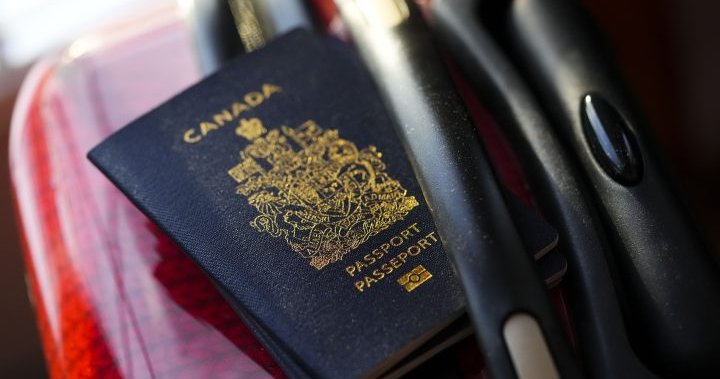Maritimers plan to travel less to the U.S. with Trump as president: survey – Halifax | Globalnews.ca

Maritimers are changing their travel habits thanks to the Donald Trump presidency south of the border.
According to a survey from Narrative Research, a market research company based in Halifax, 62 per cent of respondents said they expect to travel to the U.S. less because of Trump.
That’s compared to 37 per cent back in December 2024.
“Over the time between when he got elected and then after he came into power and started making changes and announcements, (there’s been) a big, big increase in the number of people saying, ‘Ooh, I think I’m going to travel less,” said Margaret Chapman, COO and partner with Narrative Research.
About a quarter of those surveyed said they plan to travel the same amount, and only three per cent said they would travel more.

Chapman said when they “dug into” the reason why people were changing their travel habits due to the Trump presidency, some big reasons came up.

Get breaking National news
For news impacting Canada and around the world, sign up for breaking news alerts delivered directly to you when they happen.
“One is basic disagreement with Trump, his policies and what he’s doing. So people are feeling kind of politically at odds with the decisions that are being made. There’s also a huge number of reasons around safety. People told us things like they were worried about personally being discriminated against in the new Trump U.S.A,” she said.
“They’re worried about border security. They’re worried about political unrest and turmoil, about rules changing all of a sudden and they might get stuck or they might have trouble. So kind of personal security, safety reasons.”
Chapman added that Maritimers were also concerned about the strength of the Canadian dollar compared to the American dollar.
“Another part of the financial story is people saying, ‘I just don’t want to spend my tourist dollars in the U.S. I’d rather spend it at home in Canada or contribute those funds to another country,’” she said.
The results are from an online survey conducted with 1,618 Maritimers from Jan. 30 to 31 — before Trump signed the executive order on tariffs on Canadian products on Feb. 1.
Trump has since put a pause on those tariffs. However, as of Monday, Canadian are once again bracing for the threat of tariffs as Trump is expected to announce 25 per cent tariffs on all steel and aluminum imports.
Since the looming threat of tariffs, a ‘buy Canadian’ campaign and sentiment has spread across the country.

Chapman said Narrative Research will continue to check in the months ahead whether people follow through on their travel plans and shopping decisions.
“I think it’s important for us to also keep an eye on what’s happening domestically in terms of people’s purchasing. Are they buying more Canadian products?” she said.
The survey showed responses were consistent across Nova Scotia, New Brunswick and Prince Edward Island, but differed by age. People over the age of 55 were more likely to say they would curb their travel to the U.S. in the coming year.
Narrative Research noted the data is weighted based on the 2021 Census by gender, age, and province to reflect actual population distribution.
© 2025 Global News, a division of Corus Entertainment Inc.
Related
Canada says too little, too late as Trump flip-flops on…
Nadine Yousif and Ali Abbas AhmadiBBC News, TorontoWatch: Canadian liquor store clears out US alcohol in response to tariffsNot long after the US imposed their
Vietnam, Thailand, and Philippines Among Top Asian Destinations Most-Searched by…
Home » Philippines Travel News » Vietnam, Thailand, and Philippines Among Top Asian Destinations Most-Searched by American Travelers, Driven by Surge in Viet
Trump tariffs tarnish ties: Americans anxious about travel to Canada…
Will Trump's tariffs on Canadian goods entering the U.S. affect tourism at home, tarnishing ties Canadians and Americans have shared for decades? It's a fair qu
Looming Trump travel ban strikes fear in Afghans who worked…
Expectations that President Donald Trump will soon bar Afghans and Pakistanis from entering the United States has set off panic among Afghans who were promised











